Road Transport (Course)
Online Professional Course - International Road Transport (10 ECTS)

Structure of the Course “International Road Transport” taught by EENI Global Business School:
- Introduction to the International Road Transport
- Costs and insurance of the Road Transport
- International Road Transport Union (IRU)
- TIR Convention. Customs Convention on the International Transport of Goods under Cover of the TIR Carnets
- Convention on the Contract for the International Carriage of Goods by Road (CMR), United Nations;
- CMR Consignment Note
- Additional Protocol to the Convention on the Contract for the International Carriage of Goods by Road (CMR) concerning the Electronic Consignment Note
- Safe Load Securing for Road Transport
- Trade Facilitation
- Road transport in the EU, China and Latin America
- The West and Central African Trucking Competitiveness;
- Road Transport in the ECOWAS
- Uniform Act concerning the Law of the Road Transport (AUDTMR OHADA)
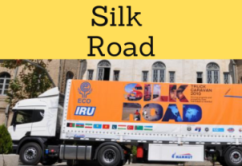
- Almaty-Bishkek Corridor
- Bangladesh-Myanmar Corridor
- China-Russia Corridor
- China-Pakistan Corridor
- China-Central-West Asia Corridor
- Europe-Caucasus-Asia Corridor
- India-Afghanistan Corridor
- Corridor of the Ashgabat Agreement
- Trans-Siberian Railway (Russia, North Korea)
- North-South Corridor (India-Russia)
- Afghanistan-Turkey Corridor
- Trans-Caspian Corridor
- East-West Corridor (Myanmar-Vietnam)
- Kyrgyzstan-Iran Corridor
- Islamabad-Istanbul Corridor
- Nanning-Singapore Corridor
 Enrol / Request for Information
Enrol / Request for Information

- Credits : 10

- Tuition Fees: EUR 240
- Open Online Enrollment
- Duration: 8 weeks It is recommended to dedicate about twelve hours of study per week following a flexible schedule. It is possible to reduce the duration dedicating more hours a week
- Download the syllabus of the Course (PDF)
Learning materials : 
- Also available in For improving the international communication skills, the student has free access to the learning materials in these languages (free multilingual training).
 Transporte por carretera
Transporte por carretera
 Transport routier
Transport routier  Transporte rodoviário
Transporte rodoviário
Sample - International Road Transport:
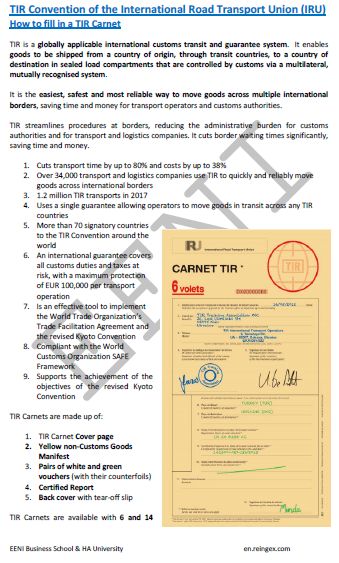
The objectives of the course are the following:
- To understand the importance of the International Road Transport in Foreign Trade
- To understand the role of the International Road Transport Union (IRU)
- To know the main players and the international road transport market
- To learn about the key concepts related to the road freight transport (cost, insurance, risks...)
- To analyze the documents related to the Road Transport (CMR Consignment Note, e-CMR) and know how to fill in
- To study the main conventions related to the Road Transport of goods (CMR, TIR)
- To know how to stow safely a load to be transported by a lorry


This course contains exercises that are evaluated, which the student must work out and pass to obtain the Diploma of the Professional Course: “in International Road Transport” issued by EENI Global Business School.
This course belongs to the following Higher Education Programs taught by EENI:Logistics Courses: Transport in Africa, Marine Transport, Multimodal.
Diplomas: Foreign Trade, International Transport.
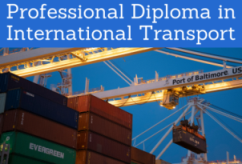
Masters: International Transport, Transport in Africa, International Business, Foreign Trade.

- Cairo-Dakar Corridor
- Algiers-Lagos Corridor (Trans-Saharan)
- Tripoli-Windhoek Corridor
- Cairo-Gaborone Corridor
- Trans-Sahelian Highway (Dakar-N’Djamena Corridor)
- N’Djamena-Djibouti Corridor
- Dakar-Lagos Corridor
- Lagos-Mombasa Corridor
- Beira-Lobito Corridor (Trans-African Highway 9)
- Northern Corridor
- Central Corridor
- North-South Corridor
- CEMAC Trade Corridor Project
- Eastern and Central Africa Corridors
- Lobito Corridor
Sample: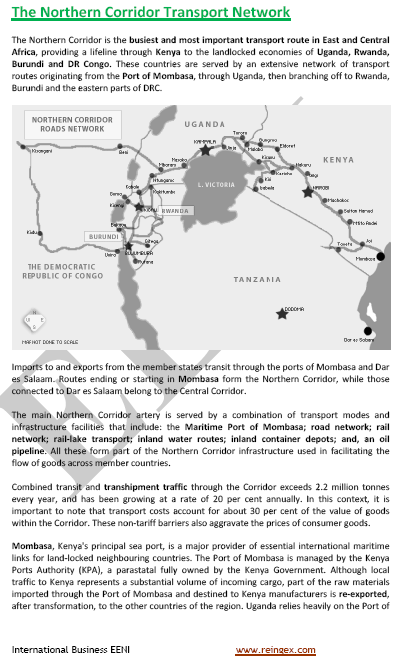
The International Road Transport is the only type of transport capable of carrying out a door-to-door service on its own, that is, it can collect the good at the exporter's factory and deliver it directly to the importer.
It is also a type of transport that facilitates the loading and unloading operations.
Due to its flexibility; it is also an essential mode of transport for the factories working on Just-In-Time basis.
CMR Convention (Convention on the Contract for the International Carriage of Goods by Road).
This convention dates from 1956 and regulates the international road traffic. The document used is the CMR Consignment Note, which shows the existence of a transport contract and that the product has been received by the carrier.
TIR is a system involving the issue of a carnet to the road hauliers, which allows loaded vehicles to cross the national frontiers with a minimum customs formalities. The signatories of the Convention are countries from Europe, the Middle East, North Africa, and North America.
Containers and Transportation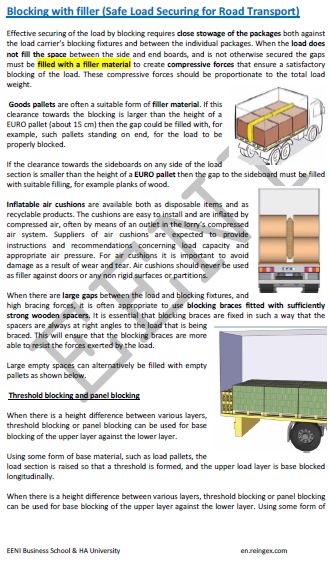
Related subjects:
- Maritime transport
- Rail transport
- Air transport
- Road-Rail Combined Transport
- Introduction to the African Corridors (Road Transport)
- Road-railway System (piggyback, Lohr UIC wagons)
- Asia-Africa Growth Corridor
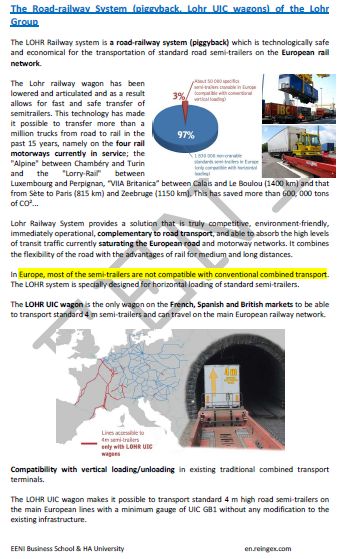
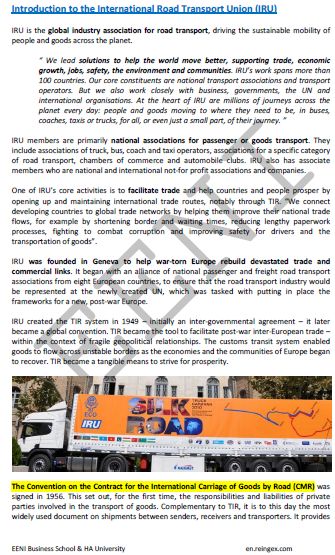
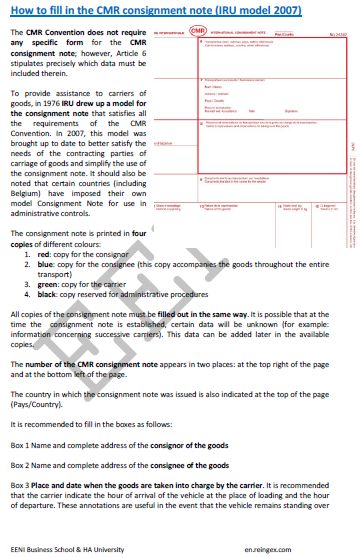
(c) EENI Global Business School (1995-2024)
We do not use cookies
Top of this page



